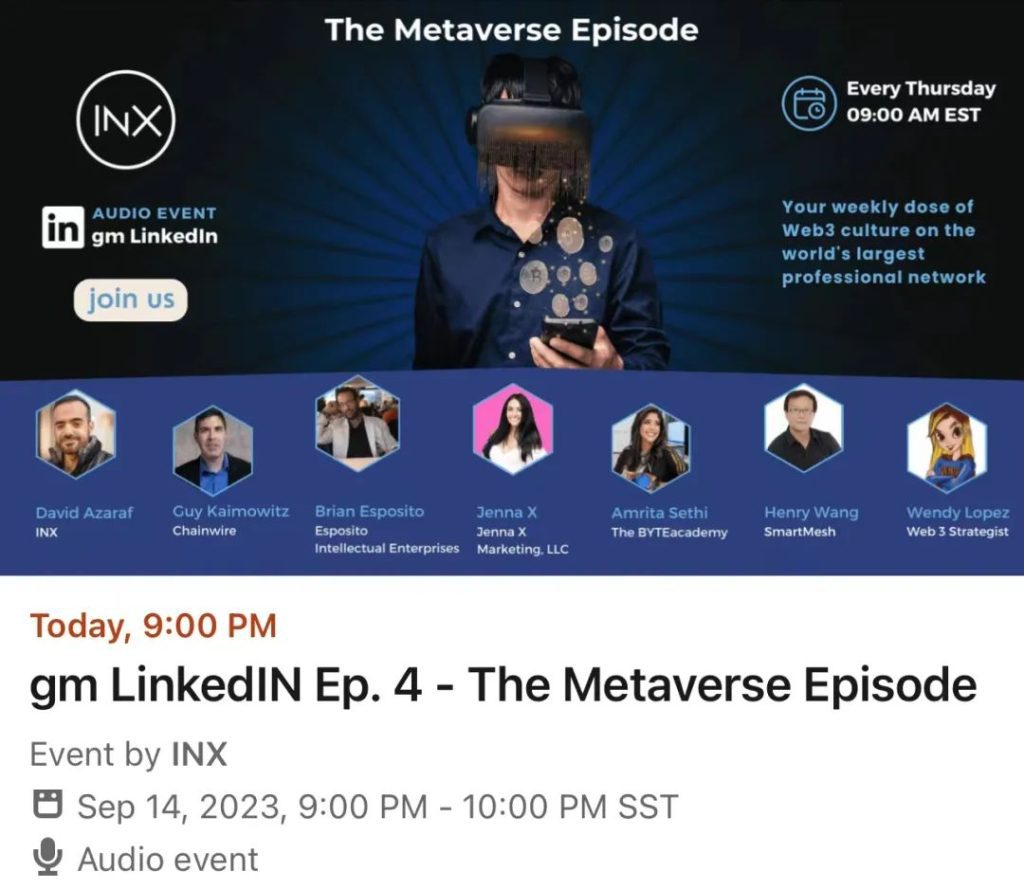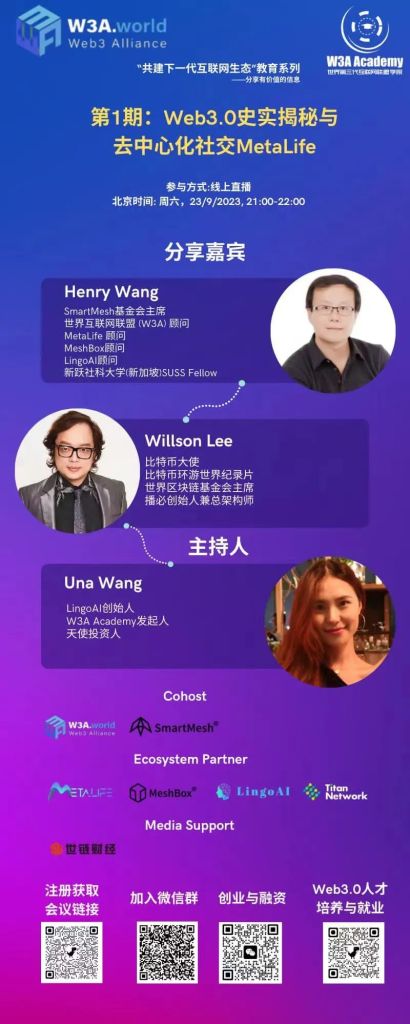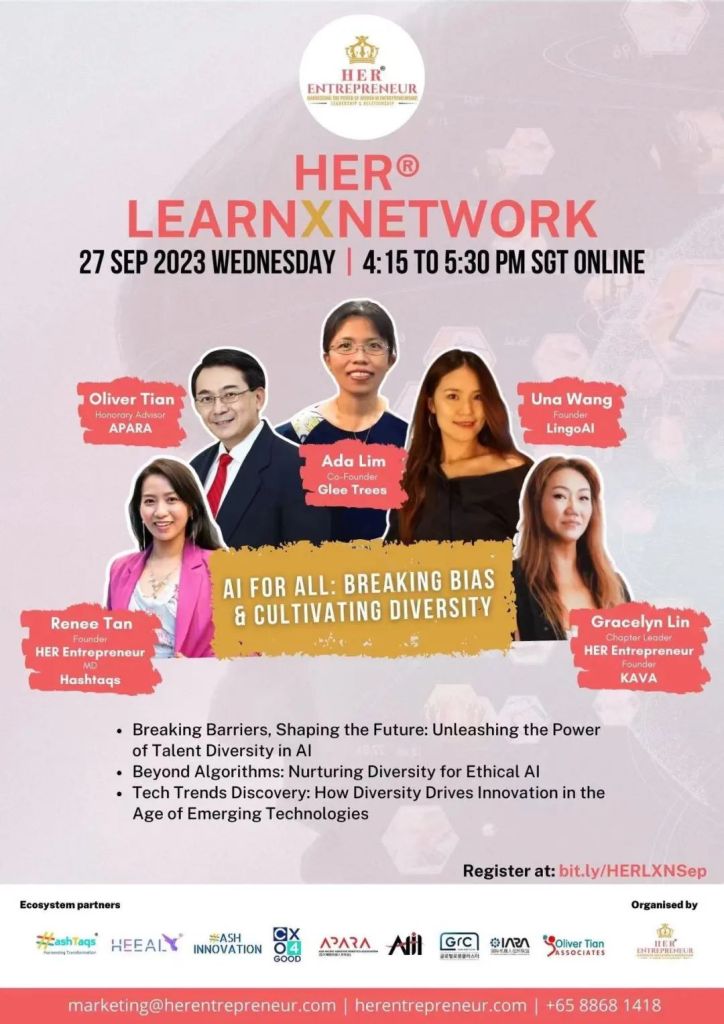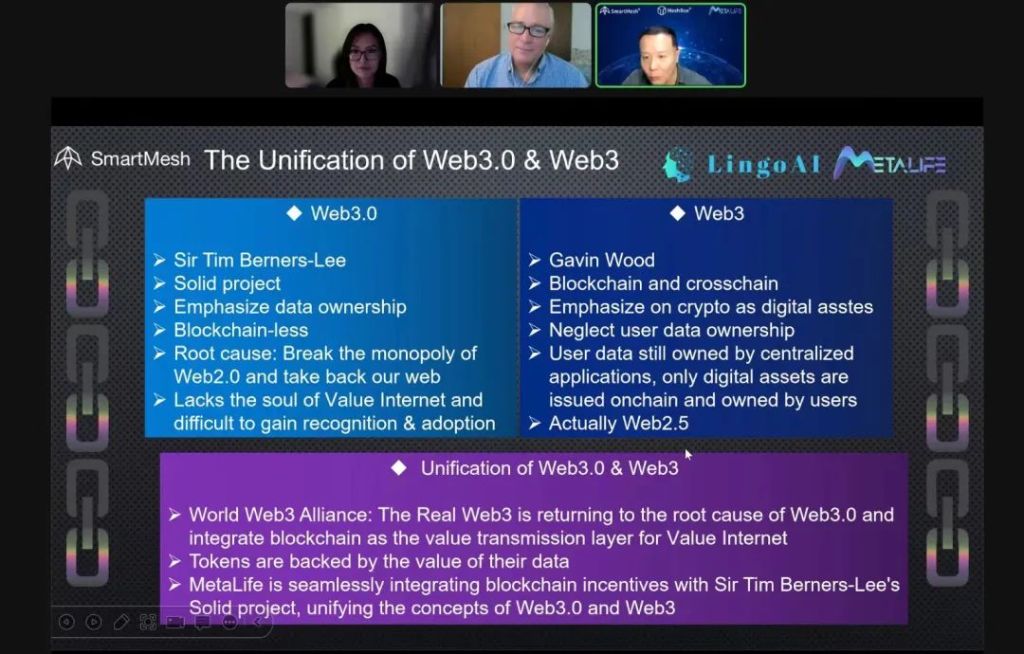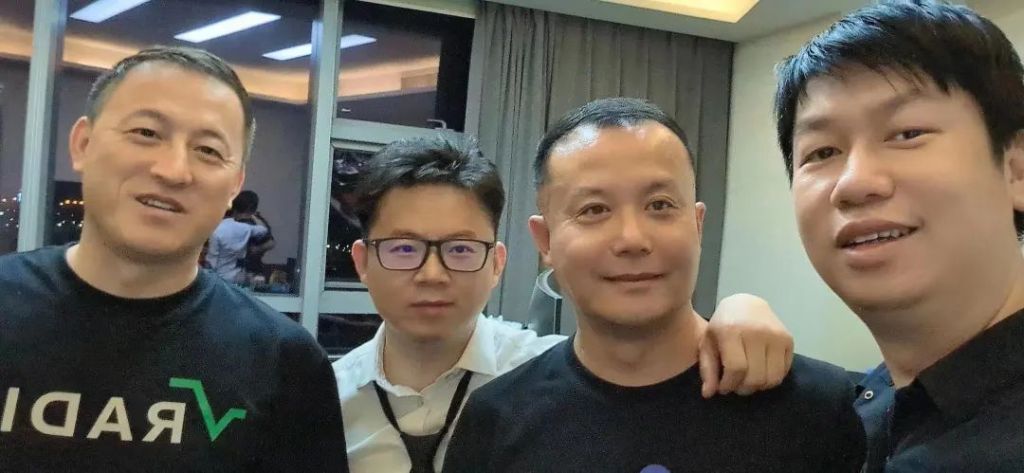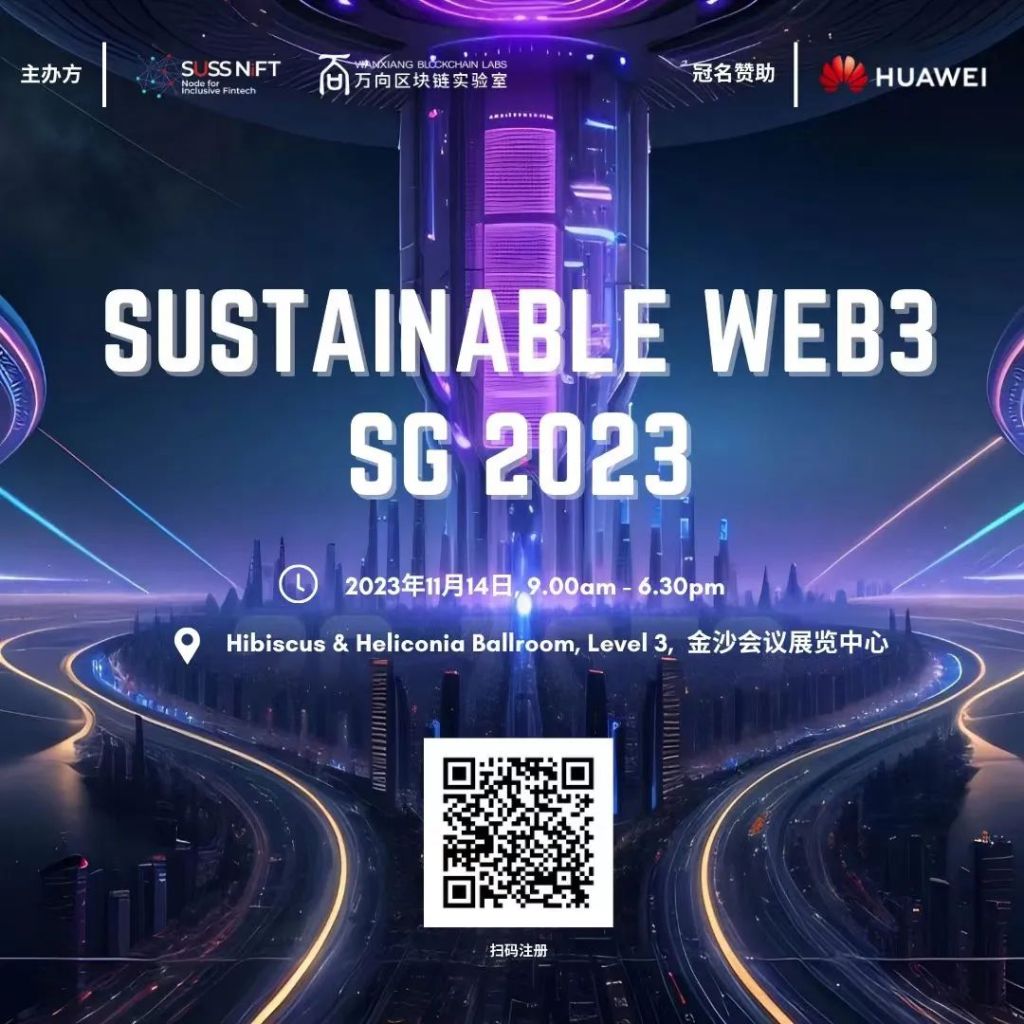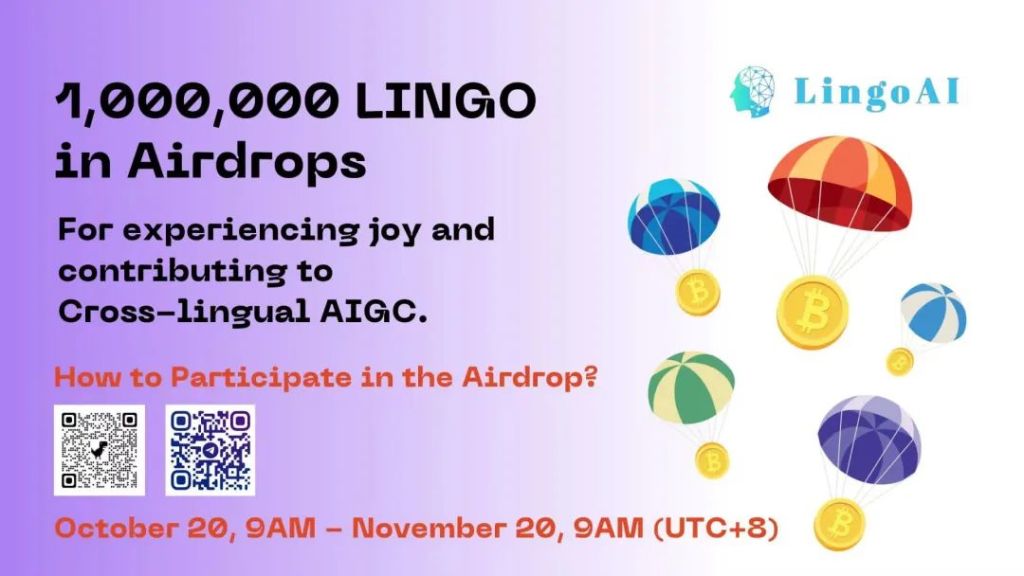With the launch and release of the world’s first true Web3.0 decentralized social network, MetaLife.social, a real Web3.0 industry ecosystem that combines both Web3.0 and Web3 is taking shape. We refer to MetaLife.social as the first Web3.0 decentralized social product because it marks the first integration of Web3.0 data/application protocols with Web3.0 value transfer protocols (simultaneously supporting offline communication and offline payments). This forms the foundation for all Web3.0 applications in a future cashless society and the third generation of the internet.
The SmartMesh ecosystem, comprising SmartMesh, MeshBox, MetaLife, and LingoAI, is not alone. Since the last weekly report, the two co-founders of the SmartMesh ecosystem, Henry and Harry, have had the privilege of discovering several projects with a genuine foundation in Web3.0. Some of these projects originate from the original intent of Web3.0, while others stem from self-disruption ideas within Web 2.0 giants. Some even directly come from friends and colleagues of the World Wide Web’s creator. These projects resonate with the fundamental Web3.0 philosophy and willingly join the World Web3 Alliance, dedicated to co-building the next generation of the internet.
After numerous exchanges in various countries and locations, it has been decided today that they will make their collective appearance at the SUSTAINABLE WEB3 SG 2023 summit. This summit, co-hosted by the Singapore University of Social Sciences and Wanxiang Blockchain Labs, will take place on November 14th at the Marina Bay Sands Hotel in Singapore, coinciding with the Singapore Fintech Festival.
Most ordinary people are still unaware of the value of their data and privacy, but the Web 2.0 giants who unlawfully possess and exploit this data value are very aware. We have identified these individuals and projects within the big corporations and are gathering substantial resources to jointly develop and promote Web3.0. The transition from Web 2.0 to Web3.0 is becoming irreversible, and people will eventually realize the value of their data and privacy, leading to awakening! A new wave of change is approaching with the upcoming Singapore Web3 Summit!
Specific tasks are as follows:
- Launch the MetaLife App’s user incentive and private message notification features.
- Conduct optimization analysis for the P-Pub2 Photon functionality. Evaluate the feasibility of logically splitting the process to close channels related to withdrawal and prevent accidental operations. This will provide support for the future expansion of Photon incentives.
Here are the specific tasks:
- Serverless Distributed Communication and MetaLife Preparation.
1.1 Conduct testing for general invitation registration in the MetaLife App to confirm the process of cross-pub invitation code registration and interactive verification for incentive distribution. This will support the improvement of app user promotion efficiency.
1.2 Perform a review and verification of the private message notification function. Test the effectiveness of active notification when new messages are received on both the front-end and back-end of private messages, providing a reference for enhancing the MetaLife user experience.
1.3 Continue the assessment of P-Pub2 functionality and stability. Perform stability testing for server communication and timely verification of incentives to provide a reference for the expansion of MetaLife Pub functionality.
1.4 Analyze the main logic of private group functionality. Analyze the process for excluding members in different epochs within private message groups and evaluate its feasibility, providing a reference for the expansion of Metalife group chats.
Here are the specific tasks for the development of the MetaLife Dapp within the SmartMesh ecosystem:
Backend:
- Expand and implement an incremental log reading method.
- Migrate to AWS Pub and perform related testing.
- Fix the retrieval pool for dynamic updates in Pub.
- Conduct research on the dark web.
- Design and develop group chat functionality.
- Design the Web3.0 architecture and integrate it with Solid.
Frontend:
- Discuss the requirements, logic, and technical feasibility of invitation codes and complete the development.
- Implement automatic re-registration for existing users after migrating to the new Pub.
- Make changes to certain UI errors and adjust the logic for reconnection on the resync page.
- Add a reporting feature for Square.
- Complete and launch the private message notification feature.
The SmartMesh ecosystem’s market and business financing activities have been proceeding systematically. Here are some specific details:
- On September 11th, the founder of SmartMesh, along with LingoAI’s CEO Una and COO Omar, had a conversation with a technical expert from OpenAI. This expert was involved in designing security rules and protocols within OpenAI to make it easier for developers to access the ChatGPT API. Every move by OpenAI, the top player in large language model generative AI like GPT-3.5, garners significant attention. After the official release of “fine-tuning” for GPT-3.5, which allowed anyone to create their own customized ChatGPT, OpenAI introduced the ChatGPT Enterprise edition, granting unlimited access to GPT-4. OpenAI is secretly training GPT-5, which is 100 times larger than the existing GPT-4. This progress in artificial intelligence raises questions about AI dominance over humans without consciousness. Sam Altman’s Web3 project, World Coin, aims to collect iris scans from everyone and provide them with Universal Basic Income (UBI) through World Coin, as he anticipates significant job displacement due to AI advancement. However, the World Coin project has faced bans in multiple countries and has been criticized by various media outlets as a form of “crypto-colonialism.” The core business model of World Coin is seen as “stealing data from the poorest people around the world, exploiting it to test data in ways that take advantage of poor people, and monetizing it, all of which is a criminal act of fraud in stealing data from the poor.”
The conversation highlighted the centralization of the internet facilitated by AI, while the decentralization of Web3.0 led by MetaLife and SmartMesh creates the premise for AI to sustainably serve humanity. LingoAI, in turn, addresses multilingualism and data interoperability issues in the context of Large Language Models (LLM) applications.
On September 13th, MetaLife advisor Henry and LingoAI CEO were invited to attend the “AI + Decentralized Social Future Forum” during the Token2049 event in Singapore. The decentralized social network serves as the starting point for the entire Web3.0 movement. This event at Token2049 was particularly significant, as this year’s Web3 wave is expected to begin with decentralized social networks, followed by Web3 games, entertainment, AI, and e-commerce.
The next generation of the Web, under Web3.0, aims to democratize the Internet, returning control to individuals and small businesses, and freeing them from the exploitation of monopolistic platforms. This transformation starts with decentralized social network protocols. The Web3.0 data protocol, known as SOLID (Social Linked Data), carries the vision of the Web’s creator. Web3.0 is also the foundation for AI to sustainably serve humanity in the future. Promoting Web3.0 at this level of understanding, with a focus on its core principles, is essential for the industry to usher in a new wave of change.
On September 14th, MetaLife.social CEO Brian and advisor Henry were invited to attend the LinkedIn event titled “The Metaverse Episode,” which focused on the metaverse. INX invited Henry as the coiner of the term “Web3.0” to share the significance of Web3.0 for the metaverse.
The metaverse has not disappeared, and there is evidence to support this claim. While the hype may have cooled down, builders continue to work on it. Brands, game developers, and independent developers are actively creating immersive online experiences on the blockchain.
INX invited a star-studded lineup to explore an exciting theme. The event featured the following hosts and special guests:
Hosts:
- Brian J. Esposito
- Guy Camevitz
- David Azaraf
Guests:
- Henry Wang from MetaLife Social
- Wendy L. from Virtua
- Amrita Sethi
- Jenna X
Joining the hosts and special guests, they discussed the following topics:
- How can brands enter the metaverse?
- What does the metaverse mean for artists and game studios?
- How do security tokens form the foundation of any metaverse strategy?
On the evening of September 23rd, LingoAI CEO hosted the first episode of the “Co-building the Next Generation Internet Ecosystem” educational series titled “Web3.0 Unveiled and Decentralized Social MetaLife.” MetaLife advisor Henry and the Chairman of the World Blockchain Foundation, Willson, were invited as guests.
One of the biggest challenges in the development of Web3.0 is that many public speakers do not fully understand what Web3.0 is, which can lead to misguidance for industry professionals, government regulatory bodies, and the general public. Looking at events such as this year’s Hong Kong Carnival, Token2049 in Singapore, and the recently concluded Shanghai Blockchain Global Summit, there has been an abundance of misleading speeches and articles. This provides an opportunity for pseudo-Web3 projects to operate in murky waters and makes it difficult for regulators to navigate. Stricter regulation can stifle innovation, while lax regulation can lead to inaction.
In a conversation-style presentation, Henry and Willson discussed the history and evolution of Web3.0 and used the decentralized social network MetaLife as an example to illustrate the development of Web3.0 from the periphery to the center, disrupting the existing internet model.
On September 27th, LingoAI CEO Una attended the “AI for All: Breaking Bias & Cultivating Diversity” themed discussion as part of the HER Entrepreneur Learn x Network 2023 event.
HER®️ Entrepreneur aims to be a transformative force for driving the growth and success of Asian female entrepreneurs and leaders. By providing an inclusive and diverse omnichannel platform, they aspire to inspire, educate, empower, and connect aspiring entrepreneurs, experienced leaders, government officials, and investors across Asia.
LingoAI combines the use of large language models, knowledge graphs, semantic networks, and projects like Tim Berners-Lee’s SOLID and the decentralized social network MetaLife.social within the SmartMesh ecosystem. It aims to help businesses and individuals break down data silos, protect data ownership and privacy, liberate valuable data, establish a decentralized data marketplace, empower artificial intelligence, enhance productivity, and contribute to new economic growth globally, all while preserving data sovereignty and privacy.
On October 7th, SmartMesh founder Henry and LingoAI CEO Una had a video conference with Justin, a friend of the World Wide Web’s creator, Tim Berners-Lee. Tim and Justin had worked together during Tim’s time at MIT, and the six of them have continued to maintain their working group and friendship over the years. Those who share the same mission and dreams are destined to come together. Interestingly, the project that Tim is most passionate about aligns with an important direction within the SmartMesh/MeshBox/MetaLife/Solid ecosystem.
Even though Tim is well-versed in the semantic web, Solid, Pod, and blockchain technologies, he was still deeply impressed when he got an initial understanding of the value internet ecosystem of SmartMesh. It was a heartwarming moment of resonance. This narrative is one of the most grand and significant in the history of the internet, without a doubt.
Justin expressed his willingness to establish connections between Henry and the SmartMesh ecosystem with the World Wide Web’s creator and related projects. He is also eager to collaborate with SmartMesh in building the Web3.0 ecosystem.
On October 12th, LingoAI CEO Una was invited to share LingoAI’s product positioning, the importance of global communities, and how semantic web technology improves large models at the Hong Kong Science Park. She also discussed how LingoAI’s technology enhances domain-specific expertise and the precision of cross-lingual knowledge transfer in specific fields.
From October 16th to 18th, the Web3.0 Industry Exchange and Cooperation Conference took place in Shenzhen. Henry presented a talk titled “The Next Wave of Web3.0 Narratives: Insights from Decentralized Social with MetaLife” at the conference. The attendees included representatives from Awaken DAO, Titan Network, former Tencent executives, investors incubating Web3.0 projects within ByteDance, founders of Web3.0 projects incubated by BGI, and more.
In his speech, Henry described how to upgrade Web2.0 to Web3.0 starting from the protocol layer. He explained why the combination of SmartMesh, MeshBox, MetaLife, LingoAI, Titan, Filecoin, Solid, and others can create an ecosystem geared toward large-scale Web3.0 applications.
As part of the discussion, Henry highlighted a project Justin is planning, where personal healthcare data and climate-related data could be stored in Pods. These data could be distributed across Filecoin/IPFS through MetaLife/Titan/Solid. This forms a complete Web3.0 infrastructure with significant market potential.
On October 18th, core members of the World Web3 Alliance (W3A) reached a consensus that the SUSTAINABLE WEB3 SG 2023 summit, co-hosted by the Singapore University of Social Sciences and Wanxiang Blockchain Labs, is an important showcase for W3A. The summit is scheduled to take place on November 14th at the Marina Bay Sands Hotel in Singapore, coinciding with the Singapore Fintech Festival. Many partners will come together to attend the summit and announce the commencement of a true Web3.0 ecosystem to the public.
With the launch of MetaLife, the SmartMesh ecosystem has strategically positioned its core projects as follows:
- Spectrum+ public blockchain for the foundation.
- Layer 2 Photon Network for offline payments.
- MeshBox, Titan, and Filecoin for decentralized physical infrastructure networks within the DePIN track.
- MetaLife.social for the decentralized social network within the DeSoc track.
- LingoAI for artificial intelligence and large language models within the LLM track.
The SmartMesh Foundation believes that artificial intelligence, decentralized social networks, and DePIN are the driving forces behind the next wave of the internet.
On October 20th, the SmartMesh ecosystem’s artificial intelligence project, LingoAI, launched its first Lingo airdrop campaign. Additionally, LingoAI plans to conduct an airdrop for SMT wallet holders in the near future. You can participate in the airdrop campaign through this link: Lingo Airdrop.
LingoAI’s smart contracts are deployed on the Spectrum public blockchain, and you can use Tango or MetaLife wallets to receive and transfer Lingo tokens.
You are encouraged to download MetaLife from the official website at https://MetaLife.social to engage in Web3.0 discussions and share your life experiences. You will receive MLT rewards daily as a return for the value of your own data.
The development of Web2.0 to Web3.0 has become irreversible, especially since the introduction of MetaLife.social. People are awakening to the value of their data and privacy. Governments, particularly in developing countries and Southeast Asian nations, will realize that their citizens can reclaim their data and its value from foreign platforms. This not only protects the data privacy of their citizens, small businesses, and the nation but also allows them to reclaim the value and cash generated from data. Those who have been deprived of their data and money can receive Universal Basic Income (UBI) through MetaLife.social, enabling them to access education and improve their living conditions. MetaLife.social has the potential to become a crucial protocol in achieving the United Nations Sustainable Development Goals and fulfilling the mission of building a global community with a shared future.
True Web3.0 is making a resounding impact, and its significance cannot be understated!








